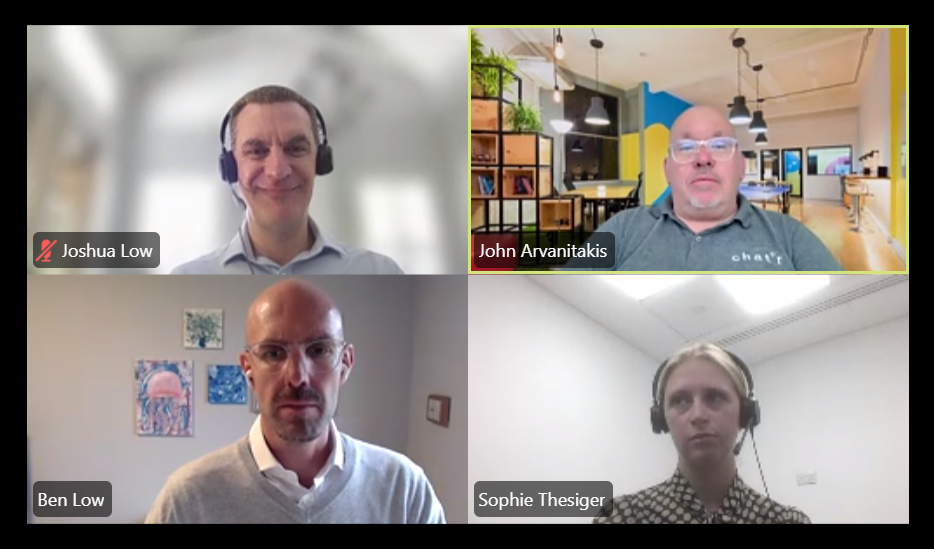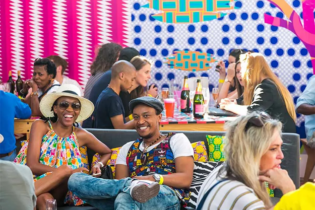During an online session held on November 14, the exhibition industry’s top leaders came together to discuss the business benefits of integrating sustainability into organisational strategies.
In-person interactions remain one of the most effective ways for organisations and initiatives to engage meaningfully with their audiences. Yet, with environmental and social concerns gaining prominence, the MICE industry must place sustainability at the heart of its strategies to ensure its longevity and the continued value of face-to-face engagement.
This was a key takeaway from an interactive webinar hosted by the Event Greening Forum (EGF) and the Association of African Exhibition Organisers (AAXO). Reflecting on the lessons of the COVID-19 pandemic, EGF Chairman John Arvanitakis remarked, “The most sustainable event is one that doesn’t happen.” He noted the stark improvement in environmental conditions during the pandemic-induced lockdowns.
However, we also saw that cancelling events is not a viable long-term solution either. The challenge lies in adapting operations to be more sustainable while maintaining the economic and social value of events. “In South Africa, event organisers play a critical role in leading clients on this journey toward greener practices,” John said.
Global standards guiding South Africa
Benjamin Low, founder of Sustainable Trade Event Partnerships (STEP), highlighted Europe’s leadership in sustainable event practices. “In Germany, recycling has been a way of life for 30 years,” he said. “You can’t attend an event where recycling isn’t part of the process.”
While European clients are driving the industry forward due to regulatory pressures, the South African sector finds itself having to pull clients toward embracing sustainability. However, as John noted, international exhibitors coming to South Africa are likely to push for higher environmental standards, aligning local practices with global norms.
“The influence of international clients is already being felt,” shared Joshua Low, an AAXO board member and Vice President of South Africa at DMG Events. He pointed out that South African venues are increasingly fielding questions from international organisers about waste management, water use, and other sustainability practices.
John added that international exhibitors often require adherence to environmental, social, and governance (ESG) standards, which could soon become a non-negotiable for local events. “In some countries, you can’t even open a bank account without presenting a sustainability report,” he noted, underscoring the urgency of integrating sustainability into the MICE sector.

Sustainability should be leader-led
The webinar emphasised the need for strong leadership to drive sustainability initiatives.
“Without the commitment of senior leadership, especially the CEOs, progress will be slow,” Benjamin agreed.
DMG Events has adopted sustainability-focused key performance indicators (KPIs) for its senior management to ensure accountability and incentivise change. Joshua shared that this approach is already helping the company prioritise sustainable practices without compromising the bottom line.
Once leadership is aligned, organisations must foster a sense of ownership among teams. Sophie Thesiger, Sustainability Manager at DMG Events, noted, “Successful companies build a culture where everyone feels responsible for sustainability efforts.”
She also highlighted the importance of integrating sustainability criteria into supplier agreements and strengthening collaboration across the supply chain. At DMG Events, regular stakeholder meetings have fostered a more unified approach to achieving Net Zero Carbon Events (NZCE) goals.
The webinar concluded that the South African MICE industry must act decisively to address its sustainability challenges and reap both the social and economic benefits for their businesses.
Note: For a deeper dive into the barriers South African organisations face in adopting sustainability and potential strategies to overcome them, refer to the full breakdown on the EGF website. This expanded discussion provides actionable insights and innovative solutions tailored to the local industry. You can also view the video via AAXO’s YouTube channel: https://www.youtube.com/watch?v=57ywukq3s-g







